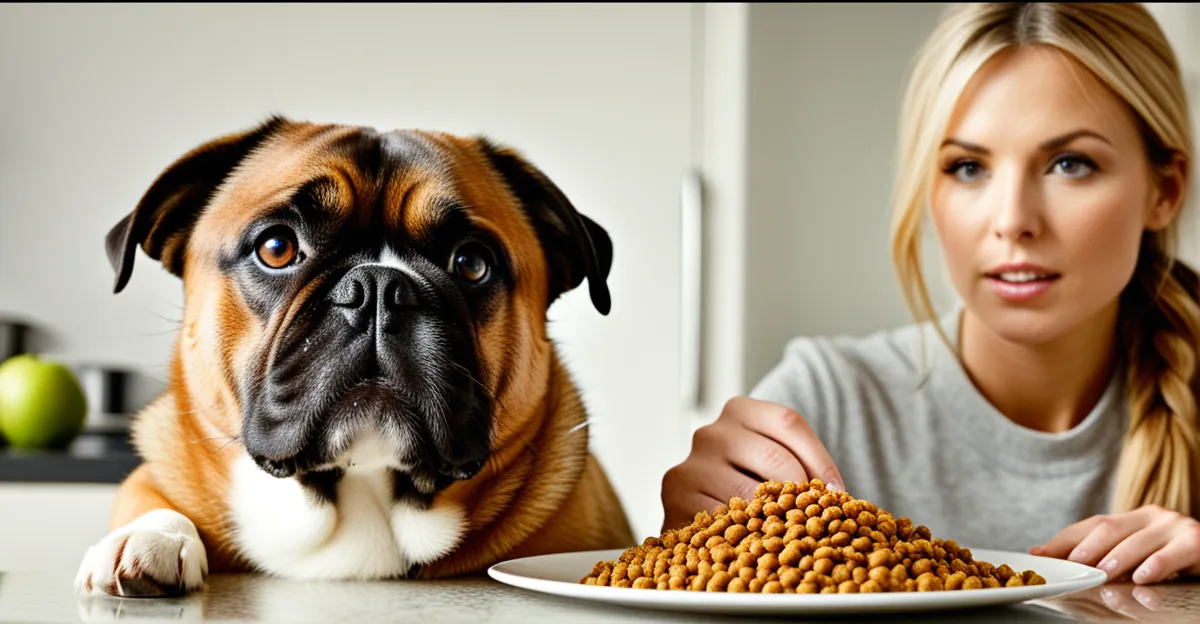Essential Components of a Balanced Pet Diet
A balanced pet diet is crucial for maintaining optimal pet health UK. Core nutrients every pet requires include protein, fats, carbohydrates, vitamins, and minerals. Protein plays a pivotal role in muscle maintenance and repair, while fats provide energy and support skin and coat health. Carbohydrates, though not essential for all pets, serve as a valuable energy source. Vitamins and minerals support vital bodily functions, including immune response and bone development.
Tailored nutrition is vital because dogs and cats have different metabolic demands. For instance, cats require higher protein levels and specific amino acids like taurine, which dogs can synthesise in smaller amounts. Ignoring these distinctions in a balanced pet diet can lead to nutritional deficiencies or excesses, adversely affecting pet health. Deficiencies may cause symptoms ranging from poor coat quality to severe organ dysfunction, while overfeeding certain nutrients can contribute to obesity or nutrient toxicity.
Also to discover : What Are the Most Common Challenges of Owning a Pet in the UK?
Understanding these key nutrients and their appropriate proportions in a pet’s diet ensures they receive comprehensive pet nutrition. This knowledge empowers pet owners in the UK to make informed decisions tailored to their pets’ unique needs for improved longevity and wellbeing.
Adjusting Diets for Species, Breed, and Lifestage
When tailoring a pet diet by breed and lifestage, recognising differences between cat vs dog nutrition is paramount. Cats, as obligate carnivores, need higher protein and specific amino acids, such as taurine, whereas dogs thrive on a more omnivorous diet with balanced proteins, fats, and carbohydrates. These distinctions shape a pet owner’s approach to offering the right age-appropriate pet nutrition.
This might interest you : How Can Owning a Pet Improve Your Quality of Life in the UK?
Breed plays a significant role too. Smaller dog breeds have faster metabolisms and may require energy-dense meals, while larger breeds benefit from joint-supporting nutrients like glucosamine. Likewise, lifestage adjustments are critical: puppies and kittens demand nutrient-rich diets for growth, adults require maintenance formulas to sustain health, and seniors benefit from low-calorie, joint-friendly diets to manage weight and ageing concerns. Ignoring these needs can lead to malnutrition or obesity, negatively impacting pet health UK.
Special dietary needs also arise from health conditions such as allergies or kidney disease. Owners should seek veterinary advice to customise diets appropriately. This precision in adjusting pet diets ensures pets receive optimal nourishment, promoting wellbeing across breeds, ages, and health statuses.
Determining Appropriate Portions and Meal Frequency
Understanding pet portion sizes is fundamental to maintaining optimal weight management for pets in the UK. How do you calculate the right portion? Start with your pet’s ideal weight, activity level, age, and breed. For cats, smaller, frequent meals suit their natural eating habits, typically 2–3 times daily. Dogs, depending on size and activity, often thrive on 1–2 meals per day. Puppies and kittens may require 3–4 smaller feeds to support rapid growth.
Feeding guidelines provide starting points but require tailoring. Overfeeding risks obesity, while underfeeding causes nutrient deficiencies, affecting overall pet health UK. Monitoring your pet’s body condition score regularly helps to adjust portion sizes effectively.
Several factors influence meal frequency, including metabolic rate, digestion speed, and lifestyle. Active breeds with higher energy demands may need more frequent meals or increased portions, contrary to sedentary pets that require less caloric intake.
Consistent weight checks and observing changes in appetite or energy levels prompt timely adjustments to feeding routines. This dynamic approach to portion control and meal timing supports healthy development, disease prevention, and longevity in pets. By understanding precise feeding guidelines and customizing meal schedules, owners can enhance their pet’s nutrition and wellbeing.
Navigating UK Pet Food Regulations and Brands
Compliance with UK pet food standards ensures pet owners provide safe, nutritious products that support pet health UK. The European Pet Food Industry Federation (FEDIAF) and Pet Food Manufacturers Association (PFMA) set comprehensive guidelines. These regulations govern ingredient safety, nutritional adequacy, and manufacturing practices to guarantee balanced diets.
Understanding pet food labelling UK is crucial for selecting quality products. Labels must list ingredients by weight and include nutritional information such as protein, fat, fibre, and moisture content. Look for claims validated by nutritional analysis, indicating compliance with FEDIAF or PFMA standards. Beware of vague terms like “meat derivatives” which may vary widely in quality.
Choosing from reputable UK pet food brands provides peace of mind about product reliability. Established brands often invest in scientific research and veterinary consultations to develop formulas tailored to species, breed, and lifestage needs. UK brands also tend to comply with strict traceability and quality control measures, reducing risks of contamination or imbalance.
Pet owners should verify certification marks and look for transparent ingredient sourcing when evaluating products. This due diligence supports informed decisions and sustains long-term pet nutrition and wellness in the UK.
Comparing Commercial and Homemade Diet Options
Choosing between commercial pet food vs homemade meals requires careful consideration. Commercial diets offer convenience and are typically formulated to meet established nutritional standards, ensuring a balanced pet diet that supports pet health UK. These products undergo rigorous testing to guarantee consistent nutrient profiles, making them a reliable choice for many pet owners.
However, some owners prefer home-cooked pet meals for greater control over ingredients and to cater to specific pet sensitivities or preferences. Preparing homemade diets comes with the critical responsibility of ensuring all key nutrients—including protein, fats, carbohydrates, vitamins, and minerals—are adequately balanced. Deficiencies or excesses can lead to serious health issues, such as weakened immunity or organ dysfunction.
To create safe and nutritious homemade options, pet owners must carefully plan recipes and often consult veterinary nutritionists to avoid inadvertent nutrient gaps. Unlike commercial diets, homemade meals require ongoing monitoring and adjustments to maintain optimal pet nutrition. Choosing the best diet depends on lifestyle, pet needs, and willingness to invest time and expertise. Whether opting for commercial products or home-cooked pet meals, commitment to nutritional completeness is essential to supporting long-term pet health UK.
Veterinarian Recommendations and Regular Health Monitoring
Regular pet health checks with a qualified UK veterinarian are essential for maintaining optimal pet health UK. Before making any changes to a pet’s diet, seeking veterinary advice UK ensures adjustments are tailored to the individual animal’s needs, considering species, breed, age, and health status. What role do veterinarians play in dietary management? They assess overall health, identify underlying conditions, and recommend precise dietary modifications based on clinical findings.
During routine check-ups, vets monitor weight, body condition, and laboratory test results, highlighting nutritional deficiencies or excesses that might not be obvious. Such thorough evaluations enable timely intervention to prevent or manage diseases like obesity, diabetes, kidney disorders, or allergies. Adjusting pet nutrition with vets is especially critical for pets with chronic illnesses or special dietary requirements.
Veterinary guidance also helps owners interpret changes in appetite or energy levels that may indicate nutritional imbalances or health issues. Collaborative dialogue between pet owners and vets fosters proactive, dynamic care. This partnership supports long-term wellbeing, as diets can be adapted responsively rather than on guesswork.
In summary, incorporating veterinary advice UK and regular health monitoring into feeding routines significantly enhances the effectiveness of any balanced pet diet, safeguarding comprehensive pet nutrition and promoting a healthier, longer life for pets across the UK.





